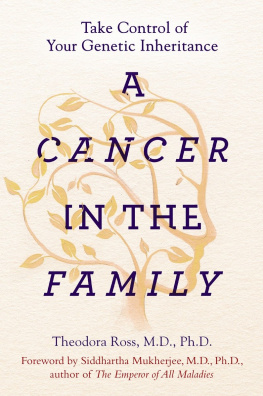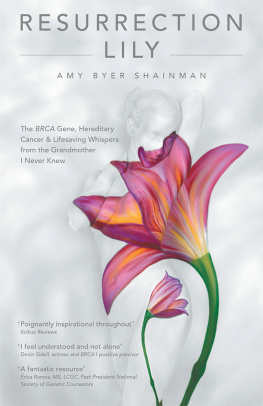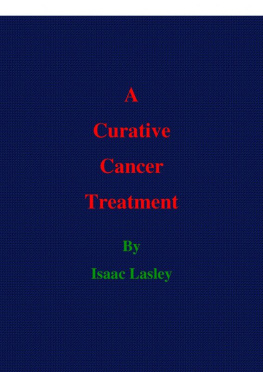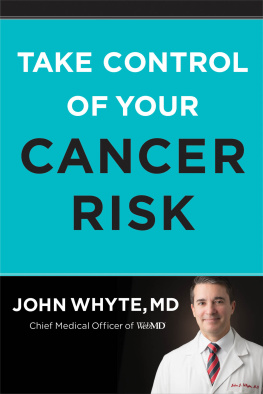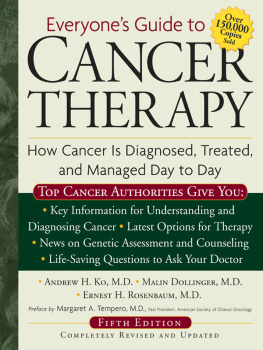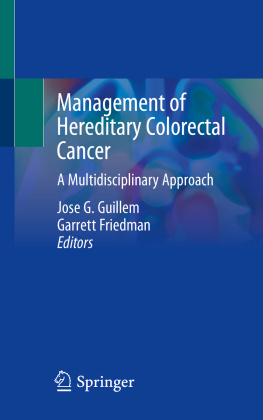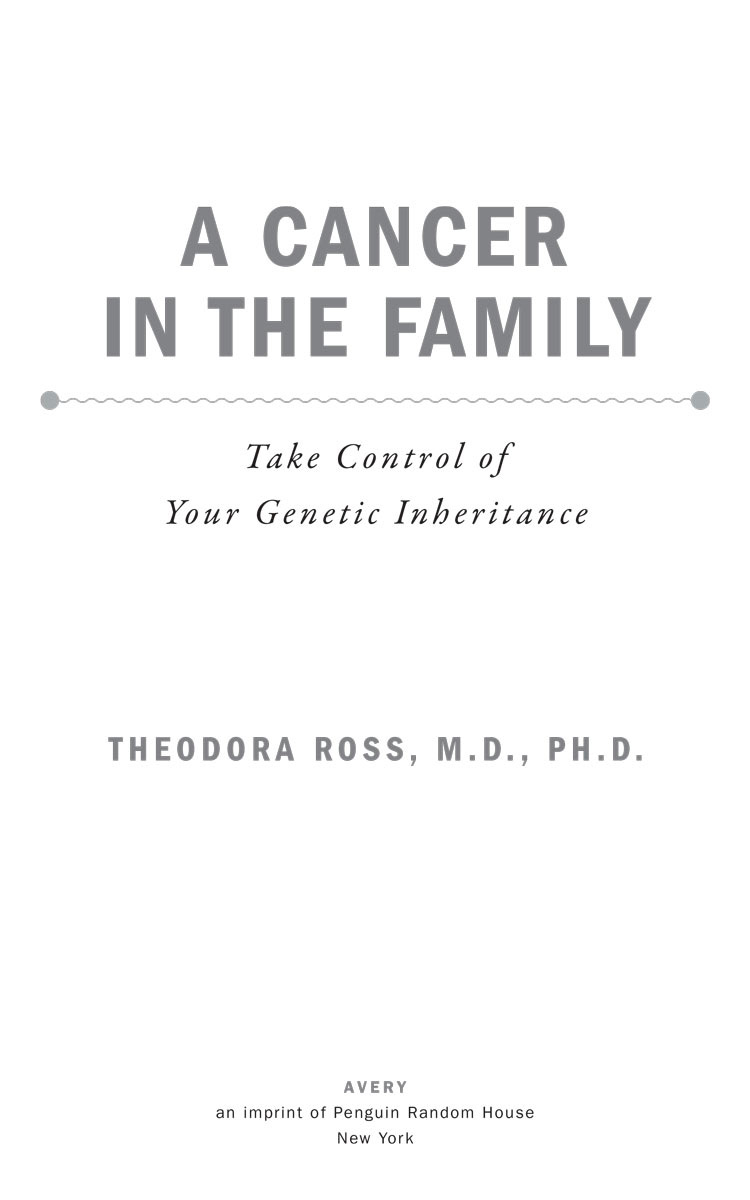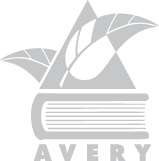
an imprint of Penguin Random House LLC
375 Hudson Street
New York, New York 10014

Copyright 2016 by Theodora Ross
Illustration credit: , Darryl Leja, National Genome Research Institute
Penguin supports copyright. Copyright fuels creativity, encourages diverse voices, promotes free speech, and creates a vibrant culture. Thank you for buying an authorized edition of this book and for complying with copyright laws by not reproducing, scanning, or distributing any part of it in any form without permission. You are supporting writers and allowing Penguin to continue to publish books for every reader.
Most Avery books are available at special quantity discounts for bulk purchase for sales promotions, premiums, fund-raising, and educational needs. Special books or book excerpts also can be created to fit specific needs. For details, write SpecialMarkets@penguinrandomhouse.com.
eBook ISBN: 978-0-698-19789-3
Library of Congress Cataloging-in-Publication Data
Names: Ross, Theodora, author.
Title: A cancer in the family : take control of your genetic inheritance / Theodora Ross.
Description: New York : Avery, an imprint of Penguin Random House, [2016]
Identifiers: LCCN 2015026294 | ISBN 9781101982839 (hardback)
Subjects: LCSH: Ross, TheodoraHealth. | CancerGenetic aspects. | FamiliesHistory. | OncologistsUnited StatesBiography. | BISAC: HEALTH & FITNESS / Diseases / Cancer. | HEALTH & FITNESS / Diseases / Genetic. | BIOGRAPHY & AUTOBIOGRAPHY / Personal Memoirs.
Classification: LCC RC268.4 .R68 2016 | DDC 616.99/4042dc23
LC record available at http://lccn.loc.gov/2015026294
Neither the publisher nor the author is engaged in rendering professional advice or services to the individual reader. The ideas, procedures, and suggestions contained in this book are not intended as a substitute for consulting with your physician. All matters regarding your health require medical supervision. Neither the author nor the publisher shall be liable or responsible for any loss or damage allegedly arising from any information or suggestion in this book.
Version_1
To my family.
I owe a huge debt of gratitude for the inspiration provided by Grammy, Grumpy, Uncle Jack, and Bea. I know that my use of their stories to help others understand their own familys story and live longer, healthier lives would have made them happy. And to Sean, the family member who read the chapters with critical care and endorsed them with Other than Sports Illustrated, this is the only literature that made me cry.
AUTHORS NOTE: To protect the patients privacy, I have changed the names of most patients and their families. I have also changed identifying details when necessary.
FOREWORD
by S IDDHARTHA M UKHERJEE , M.D., P H .D.,
author of The Emperor of All Maladies
THEODORA ROSSS EXTRAORDINARY BOOK on cancer genetics is an important contribution to the field. Allow me to introduce it with some historical background. Since the late 1970s, researchers have identified several genes that are implicated in cancer. In virtually all these cases, mutations in genes contribute to the abnormal physiology of growth that ultimately unleashes the cancerous transformation of a normal cell. Many of these mutations are acquired during our lifetimesbut, notably, some of these mutations are inherited in families.
The identification of heritable cancer-causing mutations has raised several quandaries that particularly haunt men and women with family histories of cancer. How many of these genes do we knowand how many remain unknown? What is the precise nature of risk associated with any one such gene? What tests or strategies can we deploy to reduce that risk? What if we carry a known cancer risk in our families, and yet do not know the gene involved in carrying the risk? And will we be able to test for such genes in ourselves or our children in the future?
Ross is especially qualified as a guide to these questions because of her extensive experience in the area as a physician, scientist, and cancer researcher. She completed her medical degree and a Ph.D. in biochemistry at Washington University. She trained in internal medicine at one of the preeminent hospitals at Harvard Medical School (the Brigham and Womens Hospital) and then in oncology at the Dana-Farber Cancer Institute, before launching her career in cancer genetics with the renowned leukemia researcher Gary Gilliland. In Gillilands lab, she cloned a novel cancer gene that causes leukemia. Since 1999, she has been running her own independent laboratory, trying to understand the mechanisms by which cancer genes promote the transformation of normal cells into cancer cells. She was a professor at the University of Michigan and now leads the Cancer Genetics program at UT Southwestern in Dallas.
One of Rosss key successes has involved integrating the study of cancer genes in the laboratory to the care of cancer patients in the clinic. One such project involves identifying patients who are known to have a genetic predisposition to cancer but who do not have any known mutations in genes. By sequencing thousands of genes from such patients, Rosss team has identified a series of novel risk-increasing mutations. Her lab and the genetics program in Texas have established and published the first collection of sequences from 278 such patients, resulting in a treasure trove of genetic information.
But theres a deeper and more personal reason that makes this book particularly poignant and urgent: Ross has a BRCA1 mutation herself, and a strong family history of cancer. She has been living with knowledge of that mutation for twelve years, and traveling through the complicated landscape of anxieties, losses, avoidance, judgment calls, and empowering choices that come with a family history of cancer. This book is like having a comforting chat with a passionate doctor and researcher who is also your friendthe kind of friend who can weave together accessible science, personal stories, and practical suggestions.
Ross guides us through this landscape with astonishing personal honesty, clear thinking, openness, and persistence. She explainswith an empathy that can only arise from inhabiting the worlds of doctor and patient simultaneouslyhow all of us (professionals and laypeople alike), with or without a family history of cancer, need help understanding genetics. We need help digging up our family histories, confronting those histories, and making the decisions that will protect us and our families. By the time you finish this book, you will know about cancer genetics and how that knowledge can save your life.
Now that you have started this book, congratulationsyouve also begun your own journey. Confronting a family history of cancer and thinking about the nuts and bolts of genetics can feel overwhelming. Ultimately, though, the knowledge youll gain from this book is empowering. It can save your life, and the lives of the people you love most.

